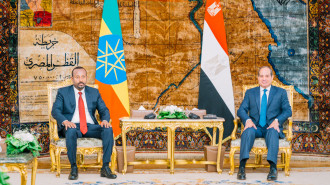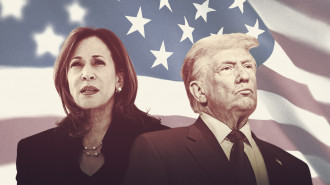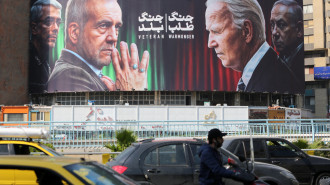Life on the run: A Salafist in Sisi’s Egypt
Mohammad Galal, a leading member of the Salafist Front – an offshoot of the Salafist Dawa, or Call, Egypt’s largest Salafist association - was already on the run when security forces came knocking on the door of his family’s apartment on 9 July 2013.
It had been one week since the military had removed former President Mohammad Morsi from power, and a nationwide crackdown on opponents of the military takeover was underway. “I’ve been on the run since then,” Galal said from an undisclosed location in a recent Skype interview. “I move from apartment to apartment, spending no more than
| We don’t have phones and our meetings are conducted quickly in the street. - Mohammad Galal, Salafist Dawa |
two weeks in one location. I can’t work, because any place that I settle down in will eventually become known to security”.
And yet the young dentist-turned-political activist managed, while in hiding, to coordinate one of the most anticipated mass mobilization efforts since the military took power. Though it largely failed to live up to the hype, the 28 November protests were organized under the banner of the Muslim Youth Uprising, an ongoing campaign by The Salafist Front that aims to assert Egypt’s Islamic identity, oppose what it sees as western domination and topple the military regime.
| How to get from Cairo to Gaza. An illustrated journey |
The Muslim Youths message stems from the belief that Islamists’ rights to political opportunity are denied in the context of current power relations and the state-led war on Islamist forces opposed to the regime. Their grievances extend to public actors partaking in a national campaign to brand components of the Islamist landscape as enemies of the state. The government clampdown spurred the young leaders of the Front into action, but the antagonism of secular opposition groups plays a central role in their sense of disaffection.
“Dozens of groups were allowed to flaunt their ideology as being secular or leftist or otherwise and impose that on their vision for the country. Islamic groups were forced to retreat, despite their wide base, their presence on the street and electoral gains to make space for these groups as they continued to expand,” Galal said.
Islamist frustrations
Author and researcher Mustafa Zahran believes that the main lesson from the Muslim Youth campaign, endorsed largely by groups to the right of the centrist Muslim Brotherhood on Egypt’s ideological spectrum, is not the call to an uprising.
“Their vision is incompatible with political, social and ideological realities on the ground,” he noted. Rather, he considers the campaign to be a culmination of Islamist youth’s frustrations with Egypt’s highly restrictive political environment.
(The recently issued 2014 Freedom in the World report shows that Egypt has declined from partially free to not free on its seven-rank scale. The report cited “violent crackdowns on Islamist political groups and civil society, and the increased role of the military in the political process” as a major factor.)
The Salafi Front is one of many socio-political groups that emerged during the period of political openness and flux that followed the 25 January 2011 revolution. Its political arm, Alshaab party, espoused a borderline socialist economic philosophy, and was hailed as one of the most revolutionary Islamists movements to in Egypt, before freezing its activities in 2013 under threat of persecution.
Zahran believes that that the social conservatism at the centre of conventional Salafi discourse, the organisation’s limited social networks and the dominance of the Nour Party over the Salafi scene would have limited the Alshaab’s appeal. Nonetheless, he said it was important to note that political participation had a moderating effect on conservative elements of Egypt’s political scene during that period.
”It pushed these groups, including far right religious groups, to distinguish themselves beyond the conventional parameters that separate Islamist movements,” he told al-Araby al-Jadeed.
A theocratic vision
Today, excluded from the country’s political scene amid the return to authoritarianism, the group no longer advocates populist economic policies and pro-labour reforms to fight western hegemony, but seeks to advance its goals by furthering its theocratic vision.
“We have become disillusioned with the frameworks of political parties, organized opposition groups, and factions,” Galal said. “The youth felt as though they were being marginalized.”
The ongoing confrontation between Islamists and the state has left Egypt in deep turmoil, prompting authorities to issue a number of decrees and measures aimed at rooting out dissent and consolidating power. A controversial protest law and a decree facilitating military trials for civilians angered human rights activists at home and abroad.
A decision by the government to designate the Muslim Brotherhood as a terrorist organisation last December raised little objection outside Islamist circles, but clearly held dangerous repercussions for civil rights in Egypt. According to Mohammed Shaat, a researcher at the Association for Freedom of Thought and Expression, there has been a marked increase in the number of detainee held on terrorism related charges since then.
“If caught, any demonstrator, particularly those from Islamist groups that fall under the Anti-Coup Alliance, is immediately reported by national security as a member of the banned Muslim Brotherhood. These reports are used to hold demonstrators on terrorism related charges. If convicted they could receive a death sentence,” Shaat said.
The government’s most recent decree limiting the ability of political groups to organize came on 9 December, when Egypt’s State Council approved a new draft law that sets broad criteria for defining terrorist entities, expanding to groups “practicing or intending to advocate by any means to disturb public order” as well as groups that “occupy public or private buildings, and public facilities”. The law, seen mainly as targeting Islamists, also tasks prosecutors with creating lists of “terrorists” associated with these groups.
Operating in the shadows
All too aware of the ramifications of being caught, Galal and countless others have become adept at devising methods to evade the authorities. “Our organizational network operates with a great amount of secrecy to prevent infiltration,” he explained.
Personal safety measures include limiting movement to avoid security posts and impromptu checkpoints, and following specific protocols to ensure that lines of communication are safe.
“We don’t have phones and our meetings are conducted quickly in the street, a couple of people at a time. It’s dangerous because there are informants on every corner,” Glal said. There have been times when he thought security agents were finally catching up with him. The most recent incident involved a couple of men on motorcycles tailing the car he was being driven in. He eventually managed to lose them on the highway.
| Time for the Brotherhood to reappraise their leadership. Read more |
The Egyptian authorities are playing a high-stakes game here. Demobilizing the support base and alienating leaders of groups like the Salafist Front – whose calls to actions were permeated by a veiled tolerance of violence as a means of resisting the government – are pushing members deeper underground and out of the regulating reach of public engagement.
And as the list of grievances fuelling low-level attacks against security – and sometimes civilian – targets continues to expand, and with no political reconciliation in sight, observers fear that violence in Egypt’s urban centres will continue to escalate.
Further repression could push Islamist forces on a whole further to the right, said Zahran, and lead to the emergence of radicalized factions.
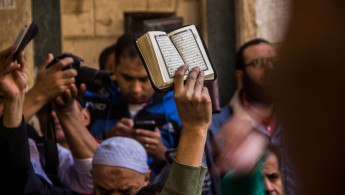
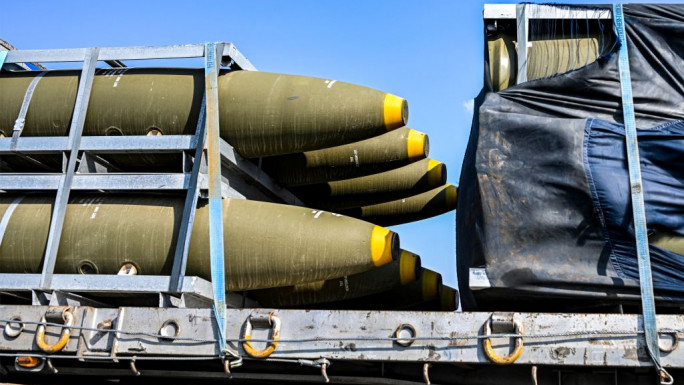
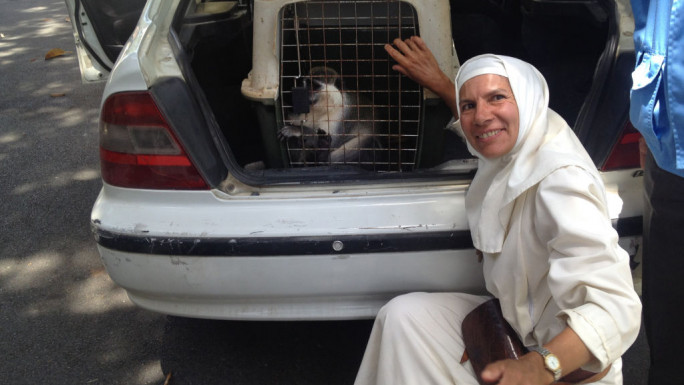
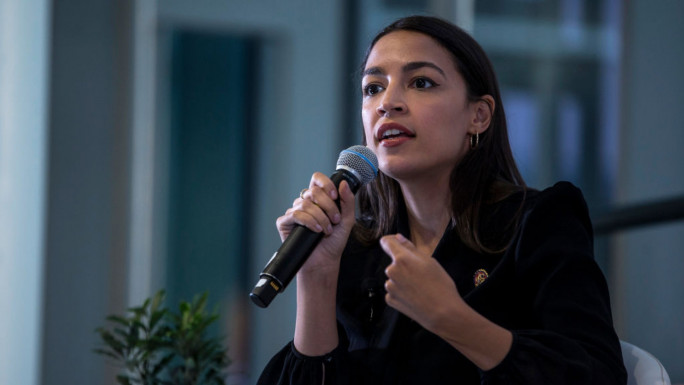
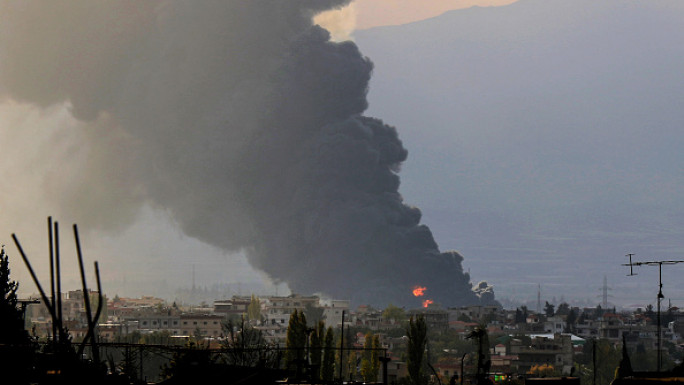
 Follow the Middle East's top stories in English at The New Arab on Google News
Follow the Middle East's top stories in English at The New Arab on Google News
